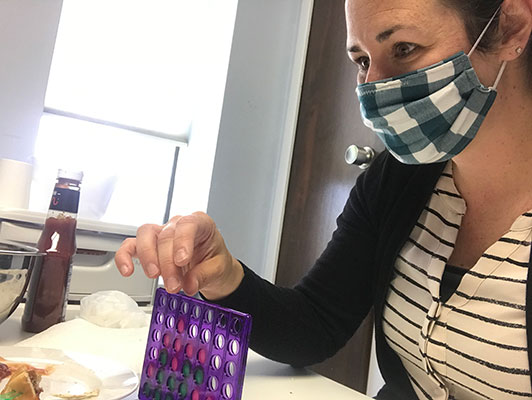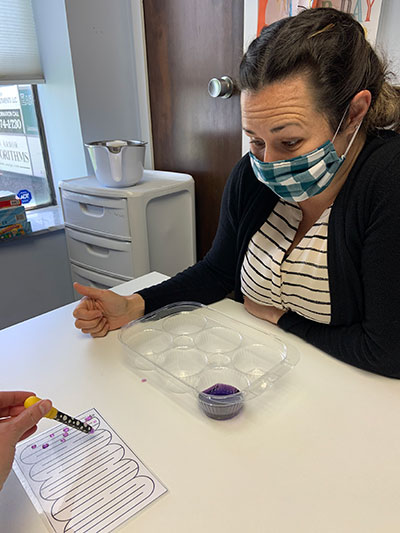Occupational Therapy at Arbor Psychology Group
Pediatric Occupational therapy strives to enhance a child’s independence in everyday activities by improving sensory regulation, motor skills, visual-motor integration, strength, coordination, and executive functioning skills. These activities can include anything a child is required to do or would like to do at home, at school, and in the community. For example, getting dressed, eating meals, handwriting, playing with toys and others.
Occupational therapy at Arbor Psychology Group provides client and family centered interventions from a psychosocial and developmental perspective. We serve children who need extra support and practice developing their skills and children with developmental delays.
Arbor Psychology’s Group Occupational Therapists specialize in 3 main areas:
Feeding/Eating
 APG Occupational therapists serve children who have trouble eating for a variety of reasons: difficulties with sucking, chewing, swallowing, gagging, or vomiting. They also support children on the autism spectrum who eat a restricted range of foods and children with an ARFID diagnosis (kids who fear eating certain foods due to their texture, taste, smell, or appearance). Our OT’s work with children as young as infancy in learning how to breastfeed or bottle feed all the way up through adolescence. One of our licensed occupational therapists is also a certified lactation counselor who brings her expertise from both areas into her feeding therapy.
APG Occupational therapists serve children who have trouble eating for a variety of reasons: difficulties with sucking, chewing, swallowing, gagging, or vomiting. They also support children on the autism spectrum who eat a restricted range of foods and children with an ARFID diagnosis (kids who fear eating certain foods due to their texture, taste, smell, or appearance). Our OT’s work with children as young as infancy in learning how to breastfeed or bottle feed all the way up through adolescence. One of our licensed occupational therapists is also a certified lactation counselor who brings her expertise from both areas into her feeding therapy.
With children and adolescents, our OT’s teach the skills needed to approach food successfully in a step-by-step manner that builds their confidence. At times, families in OT may also work with a psychologist who will teach caregivers how to respond to their child’s eating behaviors sensitively and effectively while their child learns eating skills with the occupational therapist.
Sensory Processing
 Sensory processing is how the brain takes in information from our senses. Sensory integration therapy helps kids who are sensitive to sensory input. For example, kids who find clothes’ textures, lights, or loud sounds very uncomfortable. It also helps with kids who are sensory seekers. Those that may crash into others, play too rough, and have difficulty slowing their bodies down. Sensory integration therapy helps kids to learn exercises and strategies to be more calm and regulated.
Sensory processing is how the brain takes in information from our senses. Sensory integration therapy helps kids who are sensitive to sensory input. For example, kids who find clothes’ textures, lights, or loud sounds very uncomfortable. It also helps with kids who are sensory seekers. Those that may crash into others, play too rough, and have difficulty slowing their bodies down. Sensory integration therapy helps kids to learn exercises and strategies to be more calm and regulated.
Fine Motor Development
APG occupational therapists help children with their fine motor skills (the precision, dexterity, and coordination of the hands). Developing fine motor skills is necessary for grasping and releasing toys, holding utensils, using a pencil for handwriting, tying shoes, doing up buttons and zippers, and many aspects of play and school work. Our OT’s help children gain coordination, accuracy, and strength through activities that are enjoyable and make them feel proud.
If you have concerns about your child’s eating, sensory processing, fine motor skills, independence in self care, or participation in play- please contact us to discuss these concerns with our Licensed Occupational Therapists.
To begin the intake process please complete the Occupational, Speech, or Feeding Therapy Intake Questionnaire.
